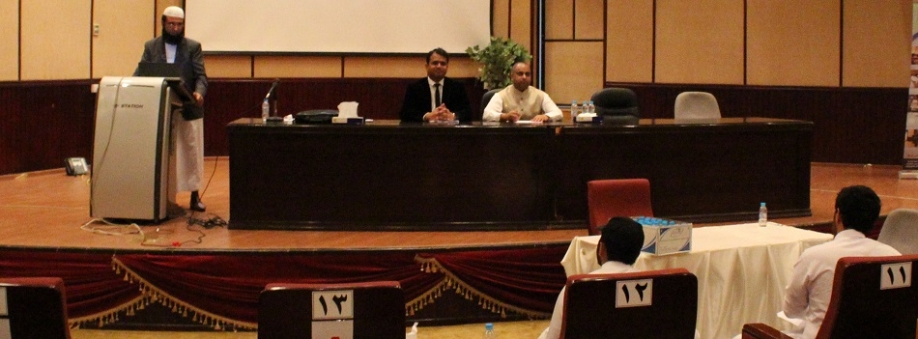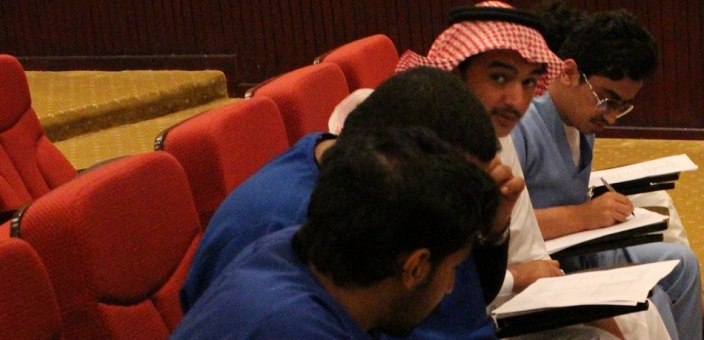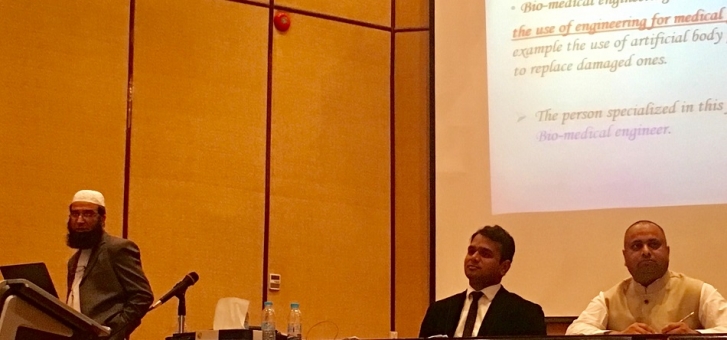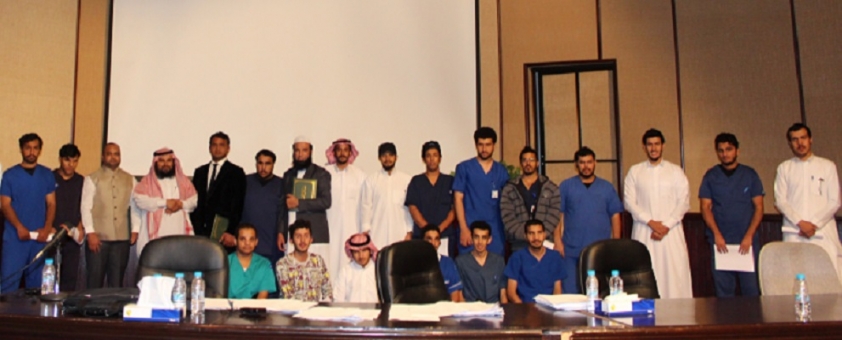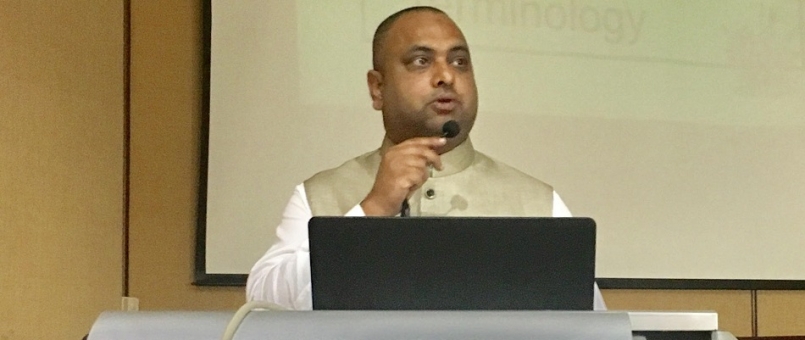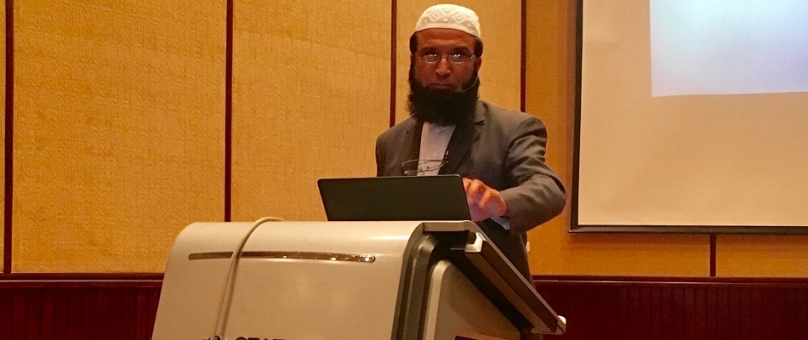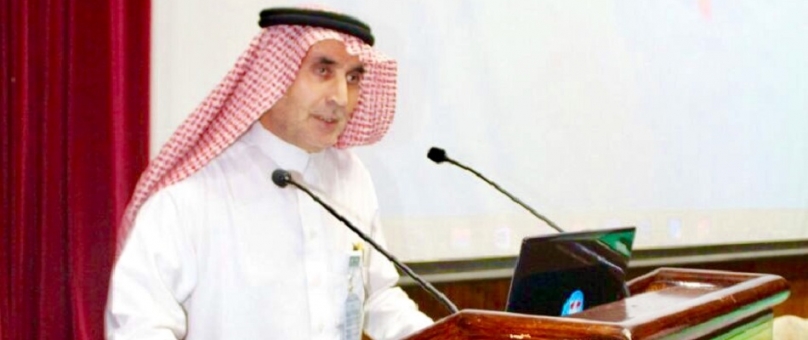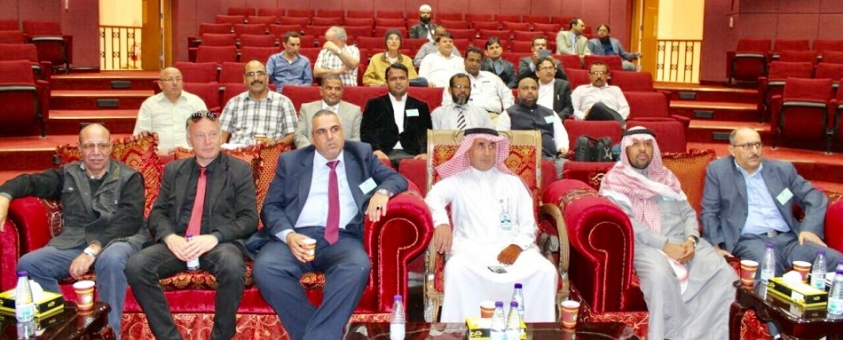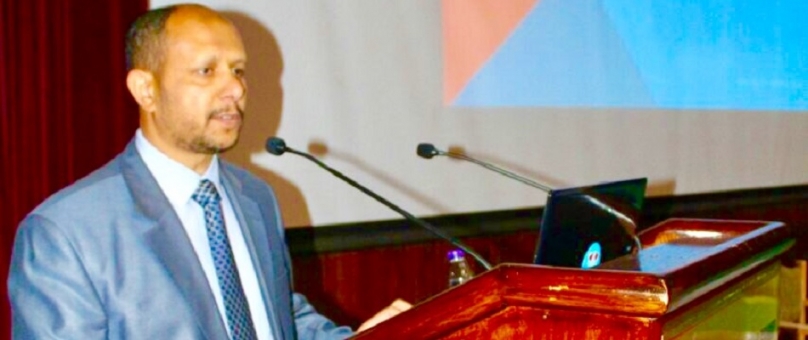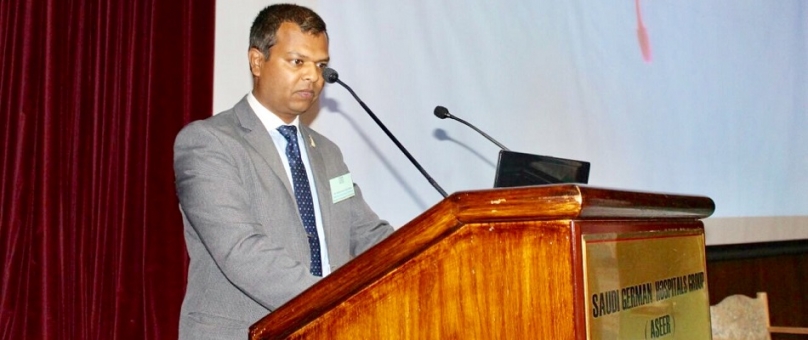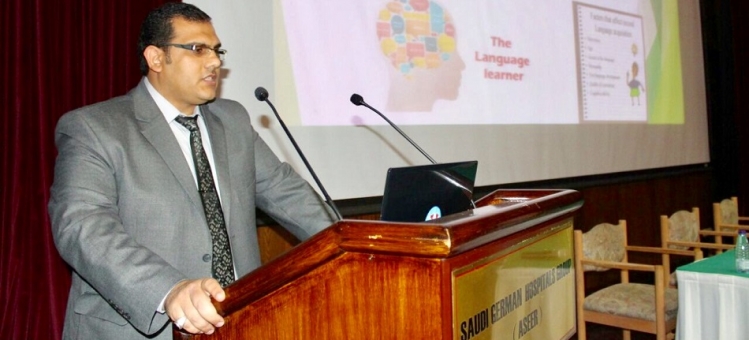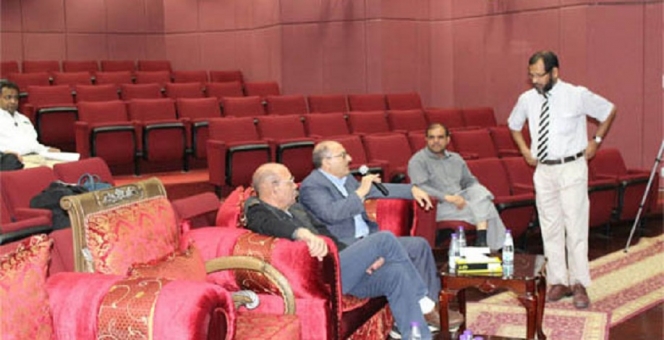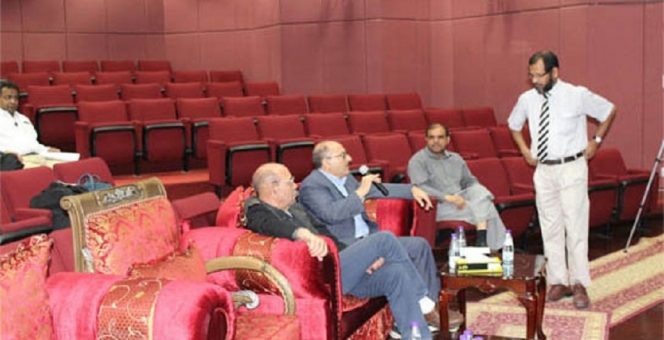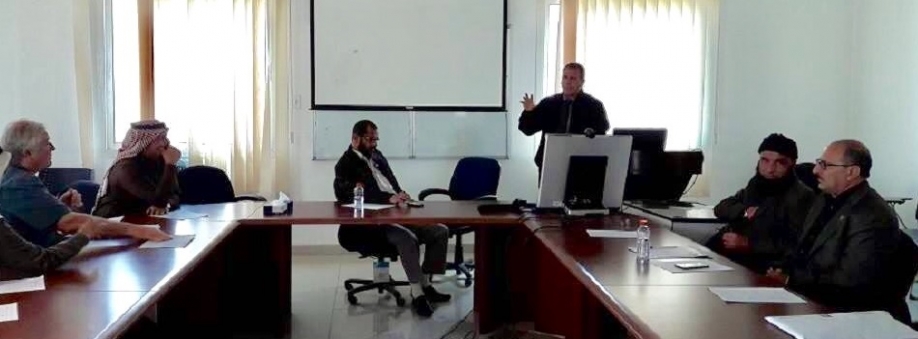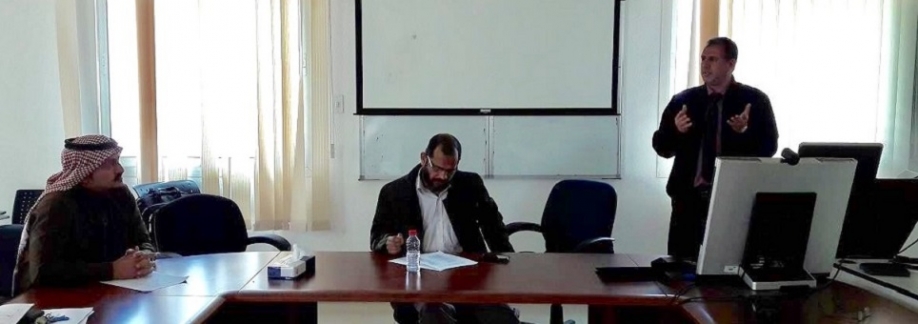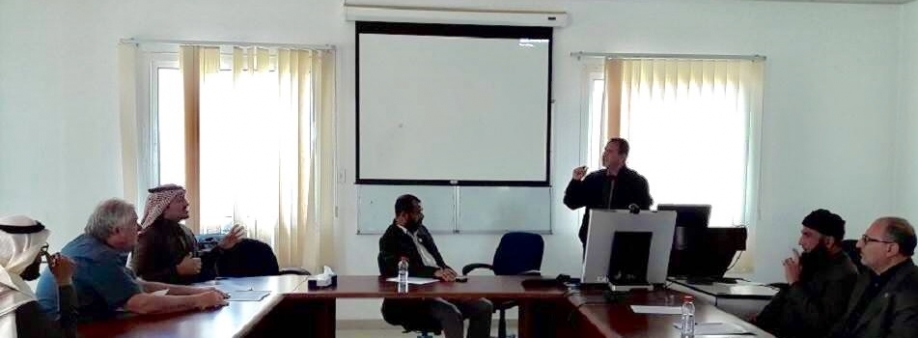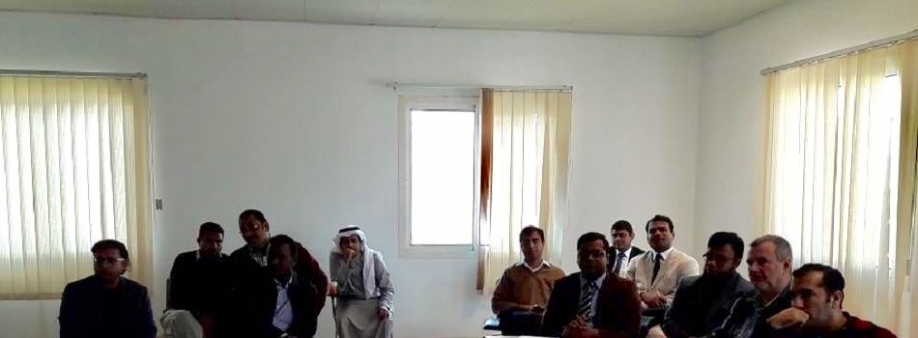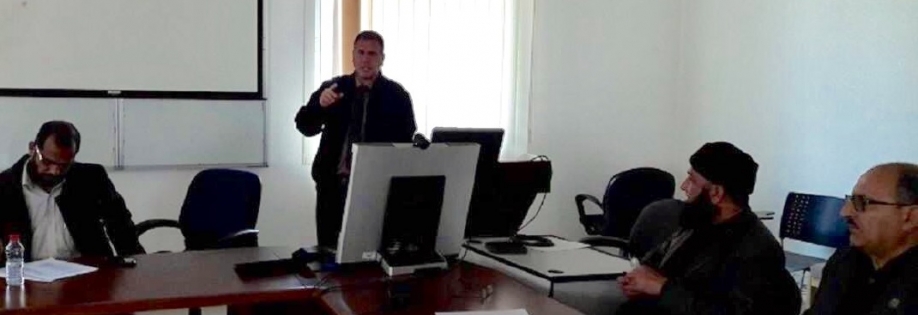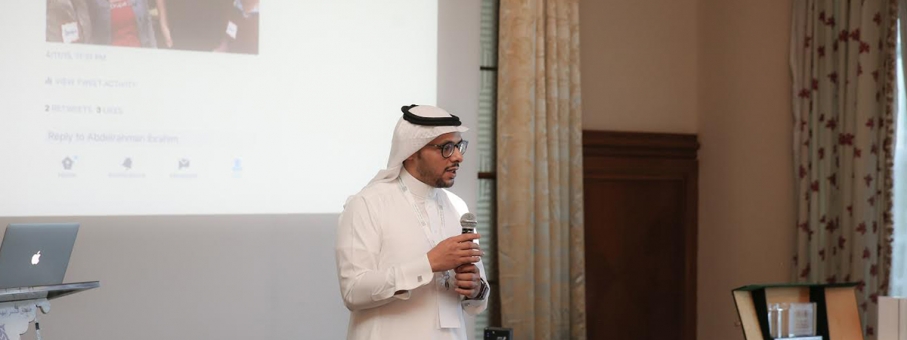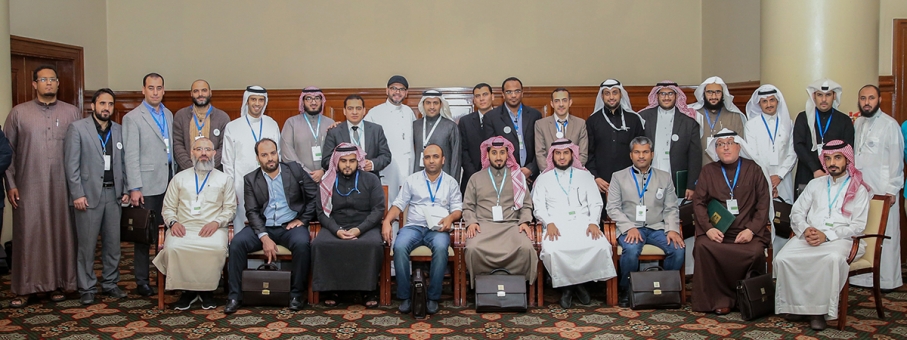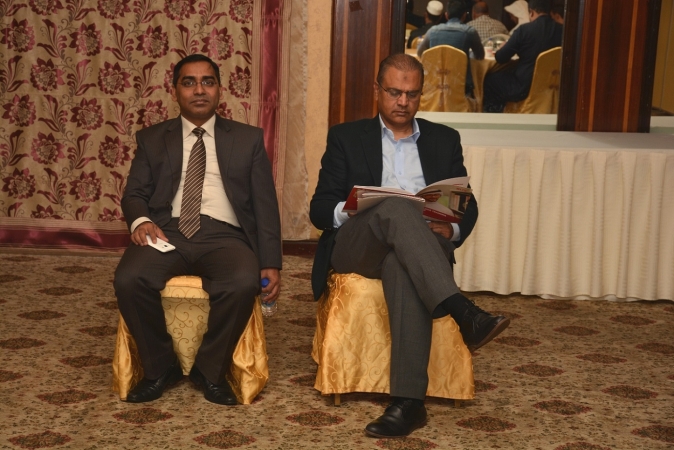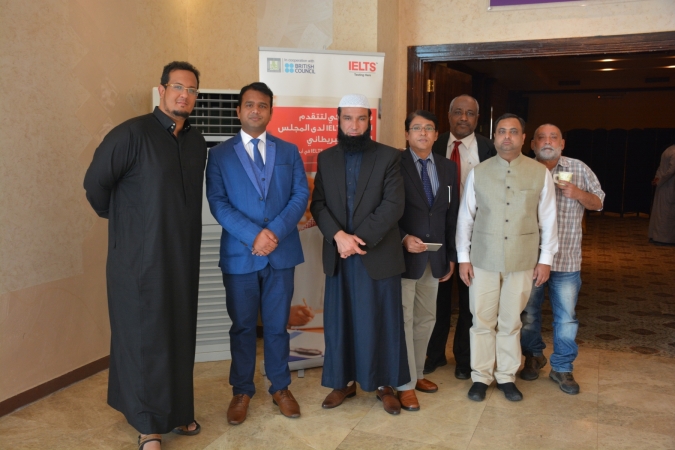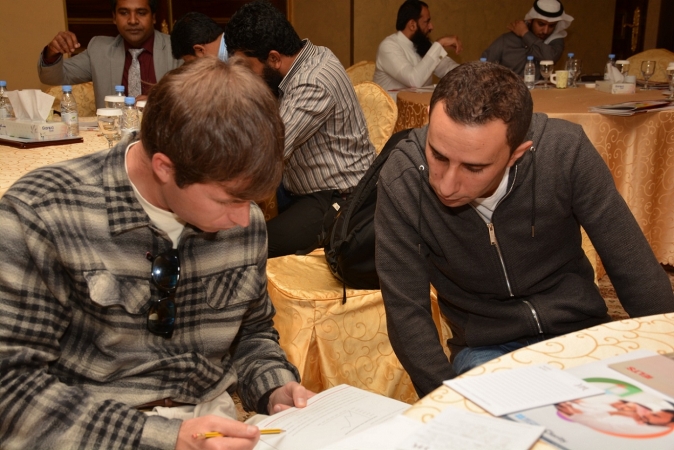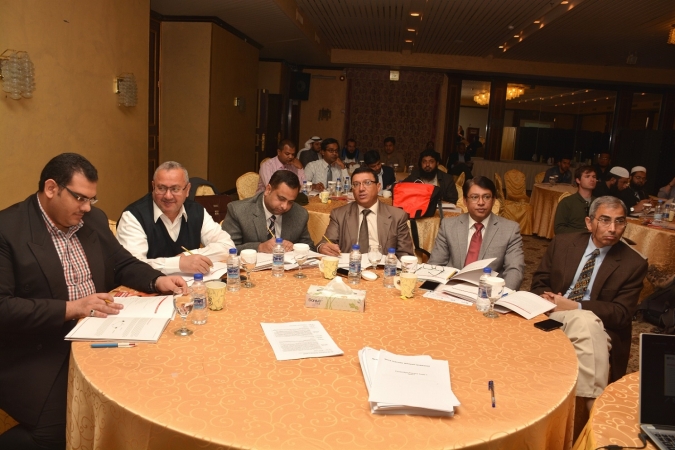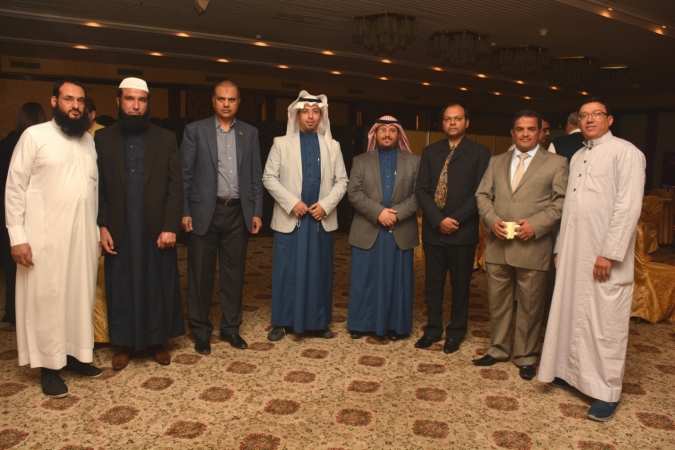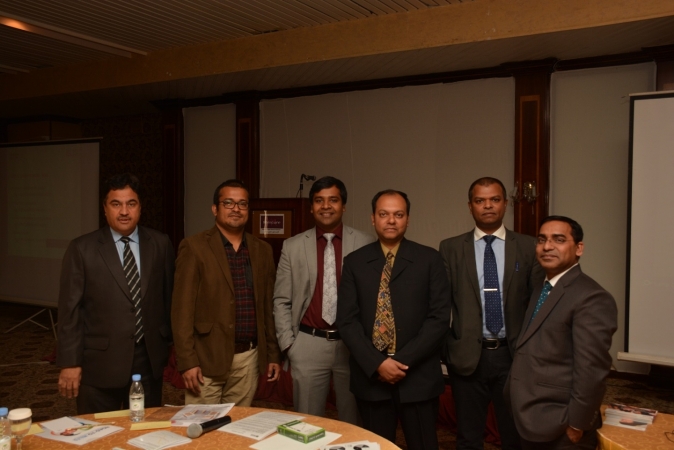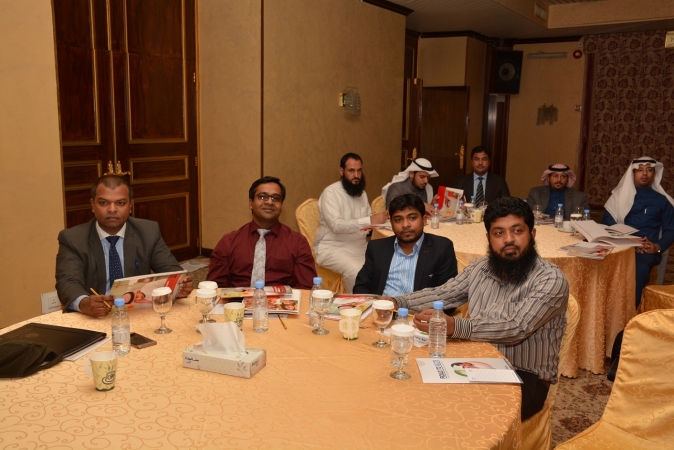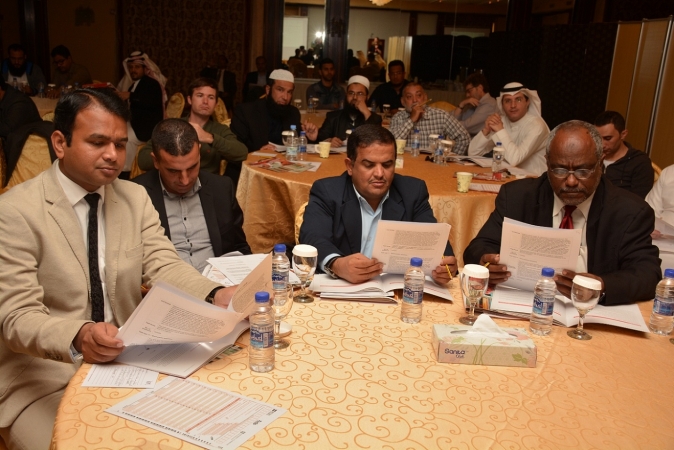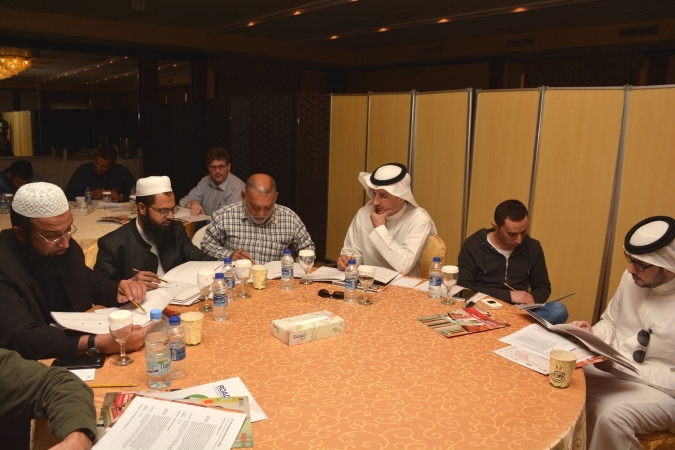FLT Conducts Two-Day Workshop on Medical Terminologies
Under the supervision of Dean, Dr. Abdullah Al Melhi, the Faculty of Languages and Translation (FLT) extended its academic support to the College of Applied Medical Sciences (CAMS). The FLT facilitated a two-day student training workshop on 'Medical Terminology.' The two-day workshop was conducted by Mr. Naser Alhawamdeh, Mr. Javed Ahmad, Mr. Salahud Din Abdul Rab and Mr. Mohsin Raza Khan.
The facilitators provided rigorous training spanning over two days [18-19 April 2017] to students from various departments of the College of Applied Medical Sciences. In his introductory session, Mr. Naser Alwawamdeh familiarized the students with the major medical terminologies. He discussed the importance of medical terminologies and general learning strategies.
Mr. Javed Ahmad facilitated the second session. He gave a detailed presentation proposing practical solutions for significant difficulties in learning medical terms. In his presentation, he highlighted various aspects of medical terminology from a linguistic point of view. Mr. Javed also focused on the etymological aspects of medical terms and showed how these words are related to Greek and Latin languages. He explained the way these terminologies could be acquired efficiently by using interactive worksheets.
The second day of the workshop was initiated by Mr. Mohsin Raza Khan where he introduced morphological and phonological dimensions of the particular language register of medicine. Mr. Khan consolidated the theocratical knowledge of students in the field of medical vocabulary through collaborative/cooperative learning activities. In the course of his thought-provoking presentation, he familiarized the students with the standard abbreviations in the field of medicine.
The fourth session of day two was conducted by Mr. Salahud Din Abdul Rab. Keeping in view the students' needs to comprehend the semantical and syntactical aspects of medical discourse, he opened his presentation with the contextual usage of medical lexis. Mr. Abdul-Rab classified and categorized the medical terminology according to the various specialties of the medical domain.
Dr. Abdullah Al Melhi further related that service learning is an excellent opportunity to involve students in community service activities and enrich their learning experience. He stressed that it is vital the students apply the experience in their academic and professional development. Educational resources including handouts and worksheets were distributed among the students during the two-day workshop.
Dr. Ali Ajab Al Shahrani, CAMS Student Activities Club Director, concluded the workshop by extending his vote of thanks. He further extended his sincere appreciation to the FLT, represented by its faculty members, for successfully conducting the interactive workshop. He appreciated the sincere efforts of the presenters by distributing certificates of appreciation.
Date: 4/20/2017
Source: Salahud Din A. Rab
Multimedia Source: CAMS

